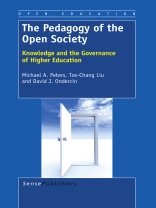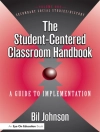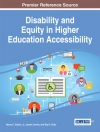Social processes and policies that foster openness as an overriding value as evidenced in the growth of open source, open access and open education and their convergences that characterize global knowledge communities that transcend borders of the nation-state. Openness seems also to suggest political transparency and the norms of open inquiry, indeed, even democracy itself as both the basis of the logic of inquiry and the dissemination of its results. Openness is a value and philosophy that also offers us a means for transforming our institutions and our practices. This book examines the interface between learning, pedagogy and economy in terms of the potential of open institutions to transform and revitalize education in the name of the public good.
Daftar Isi
Introduction: Radical Openness: A Political Theory of Social Institutions; 1. Creative Economy and Open Education: The Political Economy of Open Knowledge Production; 2. Creativity, Openness and the Global Knowledge Economy: The Advent of User-Generated Cultures; 3. Esoteric and Open Pedagogies; 4. Open Learning Systems: The Next Evolution of Education; 5. The Economics of Open Education; 6. Knowledge Socialism and Universities: Intellectual Commons and Opportunities for ‘Openness’ in the 21st Century with Garett Gietzen; 7. Managerialism and the Neoliberal University: Prospects for New Forms of ‘Open Management’ in Higher Education; 8. Learned Societies, Public Good Science and Openness in the Digital Age.












